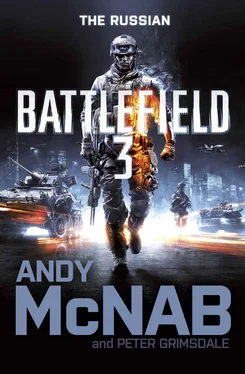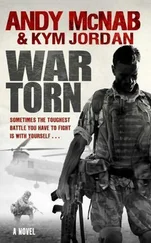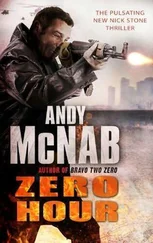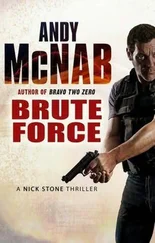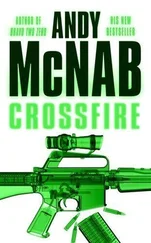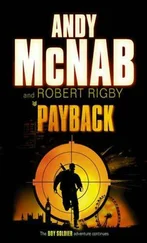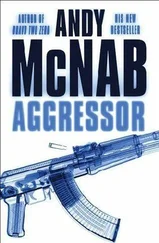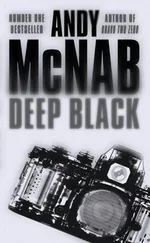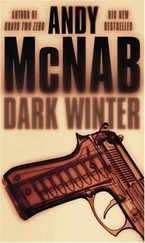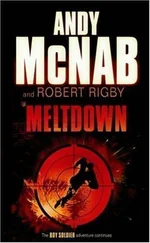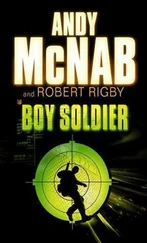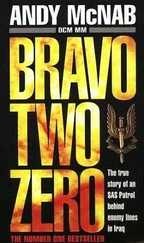As his eyes adjusted he could see a triangle of light. No, not light so much as a shape of grey in the blackness. His left wrist was trapped under something metal. Foul-smelling water from a ruptured drain had drenched him, weighing down his fatigues. His body armour had probably saved his life but it was also trapping him in the cavity he now occupied. He reached round with his right hand and unstrapped the ceramic plates to give him more mobility. Then he undid his watch, a present from his mother, which made it easier to work the wrist loose. His hand was numb, and so swollen it felt like a baseball glove had been grafted on. He mentally checked the rest of his body, toes, legs, flexing each muscle, gradually becoming aware of a pulsing throb on the back of his head. He snapped his fingers, heard nothing except the rushing of air — the sound of no sound. His eardrums had been blasted. His ears still worked, though most of what they heard was the pulsing thud of the pain. He inched forward, sliding from his armour as if it were a moulted skin, toward the dull light, quietly thrilled that whatever had happened had spared him — for now. He wasn’t religious, but thanked an invisible deity for that triangle of light he was twisting and scratching towards like a low-bellied reptile.
The first thing he noticed was the stars. A clear moonless night. Brighter than he had seen in all his time in Iraq, because most of the time the night had been viewed through NVGs (night-vision goggles). He hauled himself out of the aperture, struggled to his feet and immediately fell down again. Okay, take your time. Was there any time? His watch was gone, his armour was gone, his helmet gone, his M4, all the parts of him that said soldier: gone. He lifted himself on to his elbows and looked round. Nothing familiar, as if he’d been teleported to a different landscape. Then he recognised the Stryker, on its side, the booby-trapped truck, still intact. The IED hadn’t detonated. But both vehicles were half-covered in rubble, as if a giant dump truck had emptied its load all over them. He could see an arm, a boot. If there were others under the rubble he was deaf to their cries. No sign of his fellow soldiers, or the wounded in the Stryker.
Still on his elbows he craned round. On three sides of the plaza the buildings had collapsed, as if that same giant truck had flattened them under its wheels. Blackburn had seen plenty of bomb damage, villages razed by bombs, mortar and RPG, but this devastation was on a scale that reminded him of footage of German cities after World War Two, or of Hiroshima and Nagasaki. The sight of it drained what little energy he had left. He rested his head in his arms. Had the PLR taken to the air and bombed them?
Then he remembered the tremors, the first as they entered the plaza. This was no air strike. It was an earthquake.
8
Higher Airborne Command School, Ryazan, Russia
From the air it looked so neat, so full of promise, like an architect’s model. A cluster of low-rise buildings with bright red roofs surrounded by perfectly mown grass, bisected by grey metalled roads that radiated out to the edge of the grounds. A place in which there was only order and logic, not a single movement that wasn’t regimented, practised and predicted. To the east, however, behind a curtain of trees, was where the action took place. Twelve olive green tents stood among a vast expanse of red-brown mud. Looking out of the grey framed windows, Dima felt as though his life was on rewind, spooling back to an abyss.
Thirteen years ago he’d stood down there, grateful to have crawled out alive. And promised himself he would never go back. And until 48 hours ago, when Paliov had shown him the photograph, he’d kept that promise. Isn’t life just full of surprises, he thought. You think you’re in control of your life, but fate has an unpleasant trick up its sleeve. I thought I was free, he reflected, but was it an illusion all along?
He had never forgotten the taste of that mud, in his mouth, in his nostrils and the sensation of it drying on his naked, battered body. It was a common belief that the red tinge came not from the iron in the local soil but the blood spilled by recruits.
The theory of how the Spetsnaz training worked was explained like this. Take an empty barrel and push it right down under water, then let it go. The deeper it’s taken, the faster and further it shoots up out of the water when it surfaces. At Spetsnaz there was no such thing as too deep. Every man was taken to the depths of exhaustion and humiliation. To learn how to take orders, to control and conserve resources when you were past breaking point. To go beyond the limits of human endurance. Only the best were inducted. And many of them didn’t make it. Star recruits with glittering records gave up, broken. Some took their own lives. A few turned their weapons on their instructors. Dima was very nearly one of those.
The whole platoon shared one long tent. In the upper bunks were the stariki , the old men of nineteen who had already survived a year — in the lower, the salagi : those who had yet to pass six months. New recruits were beaten nightly with belts, sticks and spoons. If they protested they were beaten in the morning as well, and made to sleep naked out on the mud. The salagi were the slaves of the stariki : they cleaned their weapons and their boots. The stariki held jousts, riding on the salagis ’ backs. All part of the process of learning to manage your emotions: contain, control, direct.
New arrivals would be welcomed — or confronted — with a small white towel laid at the entrance to the tent. What should they do? Pick it up? Ignore it? Generally, their instinct was to step over it so as not to dirty it. At which point the inmates would take umbrage at this slight and so would begin the innocent’s first night of suffering. Dima remembered the hush, the expectant faces watching his polished boots already caked in mud, waiting to see where he would step. It was a lonely moment, the first of many. He stepped forward on to the towel and carefully wiped the uppers of his boots until they shone again. It bought him a bit of leeway, but not much.
As the Mil Mi-24 lost height he could see them, like ants crawling on the surface of the mud, the new recruits being put through their paces. How many would last? How many would end it all with a bullet — for themselves, unable to bear the shame of failure, or if their anger got the better of them, a particularly hostile stariki ? It was an unspoken agreement between Spetsnaz graduates — and those who’d fallen by the wayside — never to speak about the training. Dima exchanged glances with Kroll, a look that needed no explanation. Each knew exactly what the other was thinking. Soldiers learn to work together, Spetsnaz learn to operate alone. Once he believed it had been a good training for his life — the best possible. But then maybe if he hadn’t been one of the élite, he wouldn’t have ended up alone — might have had a real life. But there was no time to think about that now.
Today, it wasn’t recruits Dima was after: he had come for the instructors, the hardest and the smartest, full of pent-up energy for a return to the field, men to whom he could leave the more basic task of clearing the compound. Paliov had set no limits on how many men or how much kit, but that in itself bothered Dima. Paliov had made his name as a master of efficiency, never one to use a regiment where a platoon would do, who had fought long and hard against campaigns for better, more expensive, equipment. Why was he suddenly splashing out like this? Was this his last stand? Or something else?
He glanced at the other passengers, all eight of them Paliov’s underlings: Baryshev — surveillance, Burdukovsky — logistics, Gavrilov and Deniken, Yegalin and Mazlak — human doorstops. Only Burdukovsky, despite his girth, had the look of a field man, beady-eyed, his expression one of permanent quiet amusement, as if in on a joke to which only he knew the punchline. The rest looked like Aquarium lifers, unaccustomed to being let out into the daylight. He thought of Omorova’s blink — what exactly was it she’d hinted at in the Ops Room? All day the news had been full of Iran, Americans on alert along the Iraq border, the PLR consolidating control of at least three centres. And to cap it all, more earth tremors in the east. It was all happening in Iran, and they were going in to snatch a single rogue arms dealer with a small airborne army. Something wasn’t right.
Читать дальше
